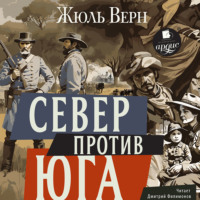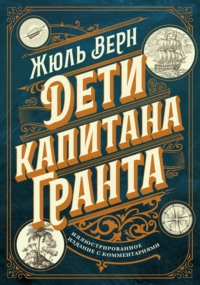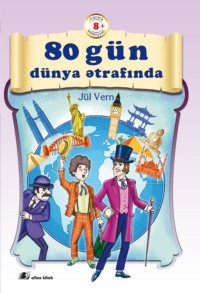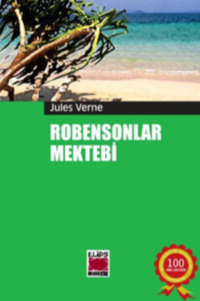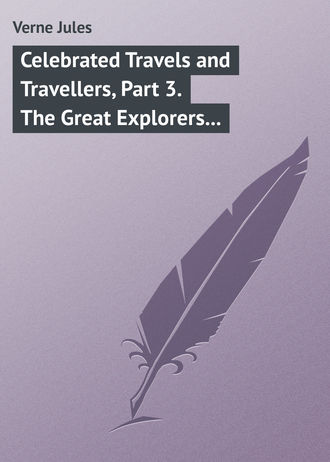 полная версия
полная версияCelebrated Travels and Travellers, Part 3. The Great Explorers of the Nineteenth Century
Since leaving the coast Clapperton had met tribes of unconverted Fellatahs speaking the same language, and resembling in feature and complexion others who had adopted Mahommedanism. A significant fact which points to their belonging to one race.
Boussa, which the traveller reached at last, is not a regular town, but consists of groups of scattered houses on an island of the Quorra, situated in lat. 10° 14' N., and long. 6° 11' E. The province of which it is the capital is the most densely populated of Borghoo. The inhabitants are all Pagans, even the sultan, although his name is Mahommed. They live upon monkeys, dogs, cats, rats, beef, and mutton.
Breakfast was served to the sultan whilst he was giving audience to Clapperton, whom he invited to join him. The meal consisted of a large water-rat grilled without skinning, a dish of fine boiled rice, some dried fish stewed in palm oil, fried alligators' eggs, washed down with fresh water from the Quorra. Clapperton took some stewed fish and rice, but was much laughed at because he would eat neither the rat nor the alligators' eggs.
The sultan received him very courteously, and told him that the Sultan of Yaourie had had boats ready to take him to that town for the last seven days. Clapperton replied that as the war had prevented all exit from Bornou and Yaourie, he should prefer going by way of Coulfo and Nyffé. "You are right," answered the sultan; "you did well to come and see me, and you can take which ever route you prefer."
At a later audience Clapperton made inquiries about the Englishmen who had perished in the Quorra twenty years before. This subject evidently made the sultan feel very ill at ease, and he evaded the questions put to him, by saying he was too young at the time to remember what happened.
Clapperton explained that he only wanted to recover their books and papers, and to visit the scene of their death; and the sultan in reply denied having anything belonging to them, adding a warning against his guest's going to the place where they died, for it was a "very bad place."
"But I understood," urged Clapperton, "that part of the boat they were in could still be seen."
"No, it was a false report," replied the sultan, "the boat had long since been carried down by the stream; it was somewhere amongst the rocks, he didn't know where."
To a fresh demand for Park's papers and journals the sultan replied that he had none of them; they were in the hands of some learned men; but as Clapperton seemed to set such store by them, he would have them looked for. Thanking him for this promise, Clapperton begged permission to question the old men of the place, some of whom must have witnessed the catastrophe. No answer whatever was returned to this appeal, by which the sultan was evidently much embarrassed. It was useless to press him further.
This was a check to Clapperton's further inquiries. On every side he was met with embarrassed silence or such replies as, "The affair happened so long ago, I can't remember it," or, "I was not witness to it." The place where the boat had been stopped and its crew drowned was pointed out to him, but even that was done cautiously. A few days later, Clapperton found out that the former Imaun, who was a Fellatah, had had Mungo Park's books and papers in his possession. Unfortunately, however, this Imaun had long since left Boussa. Finally, when at Coulfo, the explorer ascertained beyond a doubt that Mungo Park had been murdered.
Before leaving Borghoo, Clapperton recorded his conviction of the baselessness of the bad reputation of the inhabitants, who had been branded everywhere as thieves and robbers. He had completely explored their country, travelled and hunted amongst them alone, and never had the slightest reason to complain.
The traveller now endeavoured to reach Kano by way of Zouari and Zegzeg, first crossing the Quorra. He soon arrived at Fabra, on the Mayarrow, the residence of the queen-mother of Nyffé, and then went to visit the king, in camp at a short distance from the town. This king, Clapperton tells us, was the most insolent rogue imaginable, asking for everything he saw, and quite unabashed by any refusal. His ambition and his calling in of the Fellatahs, who would throw him over as soon as he had answered their purpose, had been the ruin of his country. Thanks indeed to him, nearly the whole of the industrial population of Nyffé had been killed, sold into slavery, or had fled the country.
Clapperton was detained by illness much longer than he had intended to remain at Coulfo, a commercial town on the northern banks of the Mayarrow containing from twelve to fifteen thousand inhabitants. Exposed for the last twenty years to the raids of the Fellatahs, Coulfo had been burnt twice in six years. Clapperton was witness when there of the Feast of the New Moon. On that festival every one exchanged visits. The women wear their woolly hair plaited and stained with indigo. Their eyebrows are dyed the same colour. Their eyelids are painted with kohl, their lips are stained yellow, their teeth red, and their hands and feet are coloured with henna. On the day of the Feast of the Moon they don their gayest garments, with their glass beads, bracelets, copper, silver, steel, or brass. They also turn the occasion to account by drinking as much bouza as the men, joining in all their songs and dances.
After passing through Katunga, Clapperton entered the province of Gouari, the people of which though conquered with the rest of Houssa by the Fellatahs, had rebelled against them on the death of Bello I., and since then maintained their independence in spite of all the efforts of their invaders. Gouari, capital of the province of the same name, is situated in lat. 10° 54' N., and long. 8° 1' E.
At Fatika Clapperton entered Zegzeg, subject to the Fellatahs, after which he visited Zariyah, a singular-looking town laid out with plantations of millet, woods of bushy trees, vegetable gardens, &c., alternating with marshes, lawns, and houses. The population was very numerous, exceeding even that of Kano, being estimated indeed at some forty or fifty thousand, nearly all Fellatahs.
On the 19th September, after a long and weary journey, Clapperton at last entered Kano. He at once discovered that he would have been more welcome if he had come from the east, for the war with Bornou had broken off all communication with Fezzan and Tripoli. Leaving his luggage under the care of his servant Lander, Clapperton almost immediately started in quest of Sultan Bello, who they said was near Sackatoo. This was an extremely arduous journey, and on it Clapperton lost his camels and horses, and was compelled to put up with a miserable ox; to carry part of his baggage, he and his servants dividing the rest amongst them.
Bello received Clapperton kindly and sent him camels and provisions, but as he was then engaged in subjugating the rebellious province of Gouber, he could not at once give the explorer the personal audience so important to the many interests entrusted by the English Government to Clapperton.
Bello advanced to the attack of Counia, the capital of Gouber, at the head of an army of 60,000 soldiers, nine-tenths of whom were on foot and wore padded armour. The struggle was contemptible in the extreme, and this abortive attempt closed the war. Clapperton, whose health was completely broken up, managed to make his way from Sackatoo to Magaria, where he saw the sultan.
After he had received the presents brought for him, Bello became less friendly. He presently pretended to have received a letter from Sheikh El Khanemy warning him against the traveller, whom his correspondent characterized as a spy, and urging him to defy the English, who meant, after finding out all about the country, to settle in it, raise up sedition and profit by the disturbances they should create to take possession of Houssa, as they had done of India.
The most patent of all the motives of Bello in creating difficulties for Clapperton was his wish to appropriate the presents intended for the Sultan of Bornou. A pretext being necessary, he spread a rumour that the traveller was taking cannons and ammunition to Kouka. It was out of all reason Bello should allow a stranger to cross his dominions with a view to enabling his implacable enemy to make war upon him. Finally, Bello made an effort to induce Clapperton to read to him the letter of Lord Bathurst to the Sultan of Bornou.
Clapperton told him he could take it if he liked, but that he would not give it to him, adding that everything was of course possible to him, as he had force on his side, but that he would bring dishonour upon himself by using it. "To open the letter myself," said Clapperton, "is more than my head is worth." He had come, he urged, bringing Bello a letter and presents from the King of England, relying upon the confidence inspired by the sultan's letter of the previous year, and he hoped his host would not forfeit that confidence by tampering with another person's letter.
On this the sultan made a gesture of dismissal, and Clapperton retired.
This was not, however, the last attempt of a similar kind, and things grew much worse later. A few days afterwards another messenger was sent to demand the presents reserved for El Khanemy, and on Clapperton's refusing to give them up, they were taken from him.
"I told the Gadado," says Clapperton, "that they were acting like robbers towards me, in defiance of all good faith: that no people in the world would act the same, and they had far better have cut my head off than done such an act; but I suppose they would do that also when they had taken everything from me."
An attempt was now made to obtain his arms and ammunition, but this he resisted sturdily. His terrified servants ran away, but soon returned to share the dangers of their master, for whom they entertained the warmest affection.
At this critical moment, the entries in Clapperton's journal ceased. He had now been six months in Sackatoo, without being able to undertake any explorations or to bring to a satisfactory conclusion the mission which had brought him from the coast. Sick at heart, weary, and ill, he could take no rest, and his illness suddenly increased upon him to an alarming degree. His servant, Richard Lander, who had now joined him, tried in vain to be all things at once. On the 12th March, 1827, Clapperton was seized with dysentery. Nothing could check the progress of the malady, and he sank rapidly. It being the time of the feast of the Rhamadan, Lander could get no help, not even servants. Fever soon set in, and after twenty days of great suffering, Clapperton, feeling his end approaching, gave his last instructions to Lander, and died in that faithful servant's arms, on the 11th of April.
"I put a large clean mat," says Lander, "over the whole [the corpse], and sent a messenger to Sultan Bello, to acquaint him with the mournful event, and ask his permission to bury the body after the manner of my own country, and also to know in what particular place his remains were to be interred. The messenger soon returned with the sultan's consent to the former part of my request; and about twelve o'clock at noon of the same day a person came into my hut, accompanied by four slaves, sent by Bello to dig the grave. I was desired to follow them with the corpse. Accordingly I saddled my camel, and putting the body on its back, and throwing a union jack over it, I bade them proceed. Travelling at a slow pace, we halted at Jungavie, a small village, built on a rising ground, about five miles to the south-east of Sackatoo. The body was then taken from the camel's back, and placed in a shed, whilst the slaves were digging the grave; which being quickly done, it was conveyed close to it. I then opened a prayer-book, and, amid showers of tears, read the funeral service over the remains of my valued master. Not a single person listened to this peculiarly distressing ceremony, the slaves being at some distance, quarrelling and making a most indecent noise the whole time it lasted. This being done, the union jack was then taken off, and the body was slowly lowered into the earth, and I wept bitterly as I gazed for the last time upon all that remained of my generous and intrepid master."
Overcome by heat, fatigue, and grief, poor Lander himself now broke down, and for more than ten days was unable to leave his hut.
Bello sent several times to inquire after the unfortunate servant's health, but he was not deceived by these demonstrations of interest, for he knew they were only dictated by a wish to get possession of the traveller's baggage, which was supposed to be full of gold and silver. The sultan's astonishment may therefore be imagined when it came out that Lander had not even money enough to defray the expenses of his journey to the coast. He never found out that the servant had taken the precaution of hiding his own gold watch and those of Pearce and Clapperton about his person.
Lander saw that he must at any cost get back to the coast as quickly as possible. By dint of the judicious distribution of a few presents he won over some of the sultan's advisers, who represented to their master that should Lander die he would be accused of having murdered him as well as Clapperton. Although Clapperton had advised Lander to join an Arab caravan for Fezzan, the latter, fearing that his papers and journals might be taken from him, resolved to go back to the coast.
On the 3rd May Lander at last left Sackatoo en route for Kano. During the first part of this journey, he nearly died of thirst, but he suffered less in the second half, as the King of Djacoba, who had joined him, was very kind to him, and begged him to visit his country. This king told him that the Niam-Niams were his neighbours; that they had once joined him against the Sultan of Bornou, and that after the battle they had roasted and eaten the corpses of the slain. This, I believe, is the first mention, since the publication of Hornemann's Travels, of this cannibal race, who were to become the subjects of so many absurd fables.
Lander entered Kano on the 25th May, and after a short stay there started for Funda, on the Niger, whose course he proposed following to Benin. This route had much to recommend it, being not only safe but new, so that Lander was enabled to supplement the discoveries of his master.
Kanfoo, Carifo, Gowgie, and Gatas, were visited in turns by Lander, who says that the people of these towns belong to the Houssa race, and pay tribute to the Fellatahs. He also saw Damoy, Drammalik, and Coudonia, passed a wide river flowing towards the Quorra, and visited Kottop, a huge slave and cattle market, Coudgi and Dunrora, with a long chain of lofty mountains running in an easterly direction beyond.
At Dunrora, just as Lander was superintending the loading of his beasts of burden, four horsemen, their steeds covered with foam, dashed up to the chief, and with his aid forced Lander to retrace his steps to visit the King of Zegzeg, who, they said, was very anxious to see him. This was by no means agreeable to Lander, who wanted to get to the Niger, from which he was not very far distant, and down it to the sea; he was, however, obliged to yield to force. His guides did not follow exactly the same route as he had taken on his way to Dunrora, and thus he had an opportunity of seeing the village of Eggebi, governed by one of the chief of the warriors of the sovereign of Zegzeg. He paid his respects as required, excusing the small value of the presents he had to give on the ground of his merchandise having been stolen, and soon obtained permission to leave the place.
Yaourie, Womba, Coulfo, Boussa, and Wow-wow were the halting-places on Lander's return journey to Badagry, where he arrived on the 22nd November, 1827. Two months later he embarked for England.
Although the commercial project, which had been the chief aim of Clapperton's journey, had fallen through, owing to the jealousy of the Arabs, who opposed it in their fear that the opening of a new route might ruin their trade, a good deal of scientific information had rewarded the efforts of the English explorer.
In his "History of Maritime and Inland Discovery," Desborough Cooley thus sums up the results obtained by the travellers whose work we have just described: —
"The additions to our geographical knowledge of the interior of Africa which we owe to Captain Clapperton far exceed in extent and importance those made by any preceding traveller. The limit of Captain Lyon's journey southward across the desert was in lat. 24°, while Major Denham, in his expedition to Mandara, reached lat. 9° 15', thus adding 14¾ degrees, or 900 miles, to the extent explored by Europeans. Hornemann, it is true, had previously crossed the desert, and had proceeded as far southwards as Niffé, in lat. 10° 30'. But no account was ever received of his journey. Park in his first expedition reached Silla, in long. 1° 34' west, a distance of 1100 miles from the mouth of the Gambia. Denham and Clapperton, on the other hand, from the east side of Lake Tchad, in long. 17°, to Sackatoo, in long. 5° 30', explored a distance of 700 miles from east to west in the heart of Africa; a line of only 400 miles remaining unknown between Silla and Sackatoo. The second journey of Captain Clapperton added ten-fold value to these discoveries; for he had the good fortune to detect the shortest and most easy road to the populous countries of the interior; and he could boast of being the first who had completed an itinerary across the continent of Africa from Tripoli to Benin."
We need add but little to so skilful and sensible a summary of the work done. The information given by Arab geographers, especially by Leo Africanus, had been verified, and much had been learnt about a large portion of the Soudan. Although the course of the Niger had not yet been actually traced – that was reserved for the expeditions of which we are now to write – it had been pretty fairly guessed at. It had been finally ascertained that the Quorra, or Djoliba, or Niger – or whatever else the great river of North-West Africa might be called – and the Nile were totally different rivers, with totally different sources. In a word, a great step had been gained.
In 1816 it was still an open question whether the Congo was not identical with the Niger. To ascertain the truth on this point, an expedition was sent out under Captain Tuckey, an English naval officer who had given proof of intelligence and courage. James Kingston Tuckey was made prisoner in 1805, and was not exchanged until 1814. When he heard that an expedition was to be organized for the exploration of the Zaire, he begged to be allowed to join it, and was appointed to the command. Two able officers and some scientific men were associated with him.
Tuckey left England on the 19th March, 1816, with two vessels, the Congo and the Dorothea, a transport vessel, under his orders. On the 20th June he cast anchor off Malembé, on the shores of the Congo, in lat. 4° 39' S. The king of that country was much annoyed when he found that the English had not come to buy slaves, and spread all manner of injurious reports against the Europeans who had come to ruin his trade.
On the 18th July, Tuckey entered the vast estuary formed by the mouths of the Zaire, on board the Congo; but when the height of the river-banks rendered it impossible to sail farther, he embarked with some of his people in his boats. On the 10th August he decided, on account of the rapidity of the current and the huge rocks bordering the stream, to make his way partly by land and partly by water. Ten days later the boats were brought to a final stand by an impassable fall. The explorers therefore landed, and continued their journey on foot; but the difficulties increased every day, the Europeans falling ill, and the negroes refusing to carry the baggage. At last, when he was some 280 miles from the sea, Tuckey was compelled to retrace his steps. The rainy season had set in, the number of sick increased, and the commander, miserable at the lamentable result of the trip, himself succumbed to fever, and only got back to his vessel to die on the 4th October, 1816.
An exact survey of the mouth of the Congo, and the rectification of the coast-line, in which there had previously been a considerable error, were the only results of this unlucky expedition.
In 1807, not far from the scene of Clapperton's landing a few years later, a brave but fierce people appeared on the Gold Coast. The Ashantees, coming none knew exactly whence, flung themselves upon the Fantees, and, after horrible massacres, in 1811 and 1816, established themselves in the whole of the country between the Kong mountains and the sea.
As a necessary result, this led to a disturbance in the relations between the Fantees and the English, who owned some factories and counting-houses on the coast.
In 1816 the Ashantee king ravaged the Fantee territories in which the English had settled, reducing the latter to famine. The Governor of Cape Coast Castle therefore sent a petition home for aid against the fierce and savage conqueror. The bearer of the governor's despatches was Thomas Edward Bowditch, a young man who, actuated by a passion for travelling, had left the parental roof, thrown up his business, and having married against the wishes of his family, had finally accepted a humble post at Cape Coast Castle, where his uncle was second in command.
The English minister at once acceded to the governor's request, and sent Bowditch back in command of an expedition; but the authorities at Cape Coast considered him too young for the post, and superseded him by a man whose long experience and thorough knowledge of the country and its people seemed to fit him for the important task to be accomplished. The result showed that this was an error. Bowditch was attached to the mission as scientific observer, his chief duty being to take the latitude and longitude of the different places visited.
Frederick James and Bowditch left the English settlement on the 22nd August, 1817, and arrived at Coomassie, the Ashantee capital, without meeting with any other obstacle than the insubordination of the bearers. The negotiations with a view to the conclusion of a treaty of commerce, and the opening of a road between Coomassie and the coast, were brought to something of a successful issue by Bowditch, but James proved himself altogether wanting in either the power of making or enforcing suggestions. The wisdom of Bowditch's conduct was fully recognized, and James was recalled.
It would seem that geographical science had little to expect from a diplomatic mission to a country already visited by Bosman, Loyer, Des Marchais, and many others, and on which Meredith and Dalzel had written; but Bowditch turned to account his stay of five months at Coomassie, which is but ten days' march from the Atlantic, to study the country, manners, customs, and institutions of one of the most interesting races of Africa.
We will now briefly describe the pompous entry of the English mission into Coomassie. The whole population turned out on the occasion, and all the troops, whose numbers Bowditch estimated at 30,000 at least, were under arms.
Before they were admitted to the presence of the king, the English witnessed a scene well calculated to impress upon them the cruelty and barbarity of the Ashantees. A man with his hands tied behind him, his cheeks pierced with wire, one ear cut off, the other hanging by a bit of skin, his shoulders bleeding from cuts and slashes, and a knife run through the skin above each shoulder-blade, was dragged, by a cord fastened to his nose, through the town to the music of bamboos. He was on his way to be sacrificed in honour of the white men!
"Our observations en passant," says Bowditch, "had taught us to conceive a spectacle far exceeding our original expectations; but they had not prepared us for the extent and display of the scene which here burst upon us. An area of nearly a mile in circumference was crowded with magnificence and novelty. The king, his tributaries and captains, were resplendent in the distance, surrounded by attendants of every description, fronted by a mass of warriors which seemed to make our approach impervious. The sun was reflected, with a glare scarcely more supportable than the heat, from the massive gold ornaments which glistened in every direction. More than a hundred bands burst at once on our arrival, into the peculiar airs of their several chiefs; the horns flourished their defiances, with the beating of innumerable drums and metal instruments, and then yielded for a while to the soft harmonious breathings of their long flutes, with which a pleasing instrument, like a bagpipe without the drone, was happily blended. At least a hundred large umbrellas or canopies, which could shelter thirty persons, were sprung up and down by the bearers with brilliant effect, being made of scarlet, yellow, and the most showy cloths and silks, and crowned on the top with crescents, pelicans, elephants, barrels, and arms, and swords of gold.



